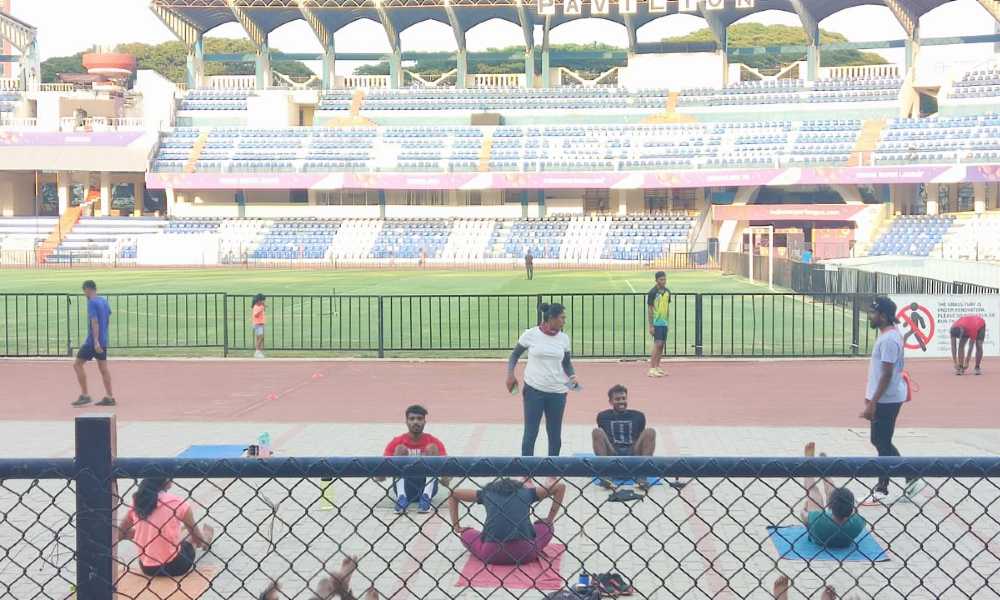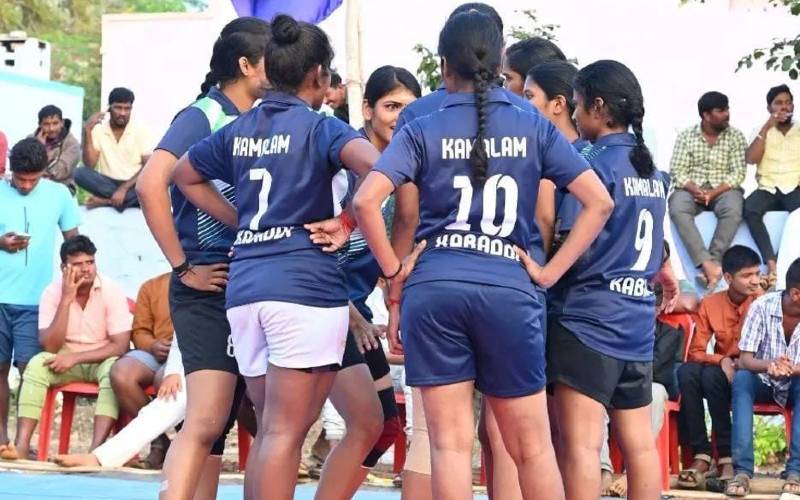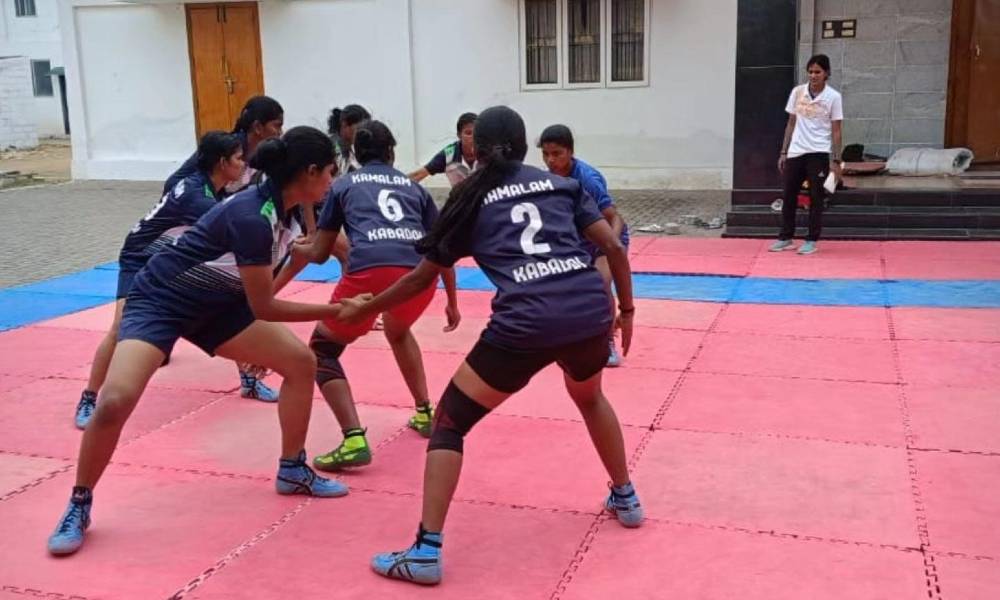Women sports persons are gaining popularity in India, but the representation of women coaches and supporting staff remain low.
Cricket fans in Bengaluru were excited when Smriti Mandhana, the captain of Royal Challengers Bangalore (RCB), the champion of Women’s Premier League (WPL), 2024, said, “It’s not ee sala cup namde (This time, the cup will be ours), it’s ee sala cup namdu (This time, the cup is ours).
RCB’s maiden victory in the WPL attracted several sports enthusiasts in the country, but few stopped to point out that the team was coached by a man, the Australian Luke Williams. Despite the growing popularity of women in sports, the presence of women coaches and supporting staff remains low. In the WPL that RCB won, of the five teams, only one— Mumbai Indians, had a woman head coach — Charlotte Edwards, a former English cricketer. The rest were headed by a male head coach.
In February 2024, Indian women’s hockey team chief coach, Janneke Schopman resigned, claiming that “she was not valued and respected enough by the national federation.”
Reeth Abraham, athlete and coach from Bengaluru, said, “Being a coach is a choice, as it won’t pay you a lot of money unless you are a reputed coach.” She added, “Coaching is not a nine to five job, women might find it difficult to manage time. It is not because women don’t want to coach.” She said, “Women coaches are better at handling players emotionally or catering to their emotional requirements. It is always good to have more female coaches.” She added that the presence of a female coach can be supportive for female players.
Surya Mol. K., an Athletic Federation of India (AFI) certified coach, said she has felt that women are underrepresented in the coaching field. She said, “Whenever I go for any events or meetings of coaches, most coaches are male and only few would be female. In a gathering of about 50 coaches, you would be lucky to find four to five women.”
She also said that the most probable reason for the lack of women coaches is time constraint. “Sports coaching usually happens early in the morning and in the evening. But this is when women are expected to be at home. Women are expected to wake up early to do their work for the day and be available in the evening when everyone returns home.”
She added that there are stereotypes associated with sports coaching in which people believe that only a male coach can control a team. She suggested that the public should be given awareness about sports and its career opportunities.
Bindu Rani, a coach at Sree Kanteerava Stadium, Bengaluru, said that sports coaching has always been a male dominated field. She said, “I have faced discriminations as a female coach. There were instances of equally qualified male coaches not ready to assist me.”

She added, “As far as I believe, women are good at multitasking. And coaching is a field which requires the coach to act as a guide, mentor, physiologist, physiotherapist and more. Also, female coaches are more patient as compared to male coaches.”
She said that being a sports coach is a great career option and awareness should be given about it to players at a young age itself.
Joji John, a football coach from Kerala, said, “Generally, women do not get the opportunity to know more about a career in coaching, especially because of the social condition in which they grow up, where families are not interested in a career in sports.” He added that female players should be given awareness about the career from a young age itself.
In June 2022, the Sports Authority of India (SAI) had issued guidelines to National Sporting Federations (NSF) to increase the number of women coaches and supporting staff. The directive came after an Indian woman cyclist accused the national coach R.K. Sharma of harassment in a complaint to SAI.
According to data from SAI, in 2021, only 23.6 percent of all the coaches under SAI, were women. There were 940 coaches under SAI, including contract coaches, and only 222 coaches were women.
Similarly, under AFI, the apex body for running and managing athletics in India, out of the 41 coaches, only three were women. In the supporting staff which includes masseurs and physiotherapists, eight out of 19 were women.
Mustafa Sapatwala, Associate Dean, Desportz Institute, a sports education institute based in Gujarat, said, “Sports coaching has traditionally been a male-dominated field, and historical biases and stereotypes have contributed to the underrepresentation of women in coaching roles.
He added that gender stereotypes about women’s abilities in sports, leadership, and coaching roles, lack of role models and mentorship for aspiring female coaches, challenges in balancing work life and personal life and structural barriers within sports organizations are some of the reasons for the lack of female coaches in various sports.
He also said that women get limited opportunities to pursue coaching careers in sports due to barriers such as access to resources, networking, and mentorship opportunities.
Officials from the SAI say that the number of women coaches is improving gradually.
Amar Jyoti, Director, SAI, Delhi, said, “Over the last decade, things are improving. Now there is a better response from female players to be trained as coaches.” She said that earlier female sports players were less enthusiastic to adopt a coaching a career.
She added, “There should be a systematic approach to motivate women athletes to take coaching as a profession and the institutions that impart sports coaching education should have exclusive courses for women at various standards of coaching like community coaching, basic coaching, intermediate coaching and high-performance coaching.”
Susmita Jotshi, former Director at SAI, Delhi, said, “Now more female sports players are ready to opt for a career in coaching. So, within a period of ten years, there will be an increase in the number of female coaches in India.” She said that the underrepresentation of women in coaching is mainly due to the less popularity of the coaching career.
She added that SAI has taken several initiatives like sports hostels, scholarships and other facilities, for aspiring female coaches.

She said that SAI imparts training for coaches who fulfill the eligibility criteria required for the courses which include certificate courses, diploma courses and full-time courses. The Netaji Subhas National Institute of Sports (NSNIS), Patiala is the main training centre for coaches apart from training centers in Bengaluru and Kolkata. She added that coaches who work under SAI are selected through various recruitments.
Sapatwala added that SAI also offers online coach education programmes.
Sapatwala said, “While progress has been made in increasing the representation of female coaches in Indian sports, there is still room for improvement in increasing their numbers.”
Sapatwala said that addressing the lack of female coaches requires a multi-faceted approach involving various stakeholders, including sports organizations, policymakers, educational institutions. He said, “Sports organizations should prioritize gender diversity initiatives like setting targets or quotas for female coaches, implementing diversity training programs, and creating inclusive hiring practices.”
He added that aspiring female coaches need mentorship and professional development opportunities like coaching clinics, leadership workshops, and skill-building programs.
He also said that sports stakeholders, including athletes, administrators, parents, and fans, should be educated about the importance of gender diversity in coaching and challenge stereotypes that may hinder women’s advancement in coaching roles.



